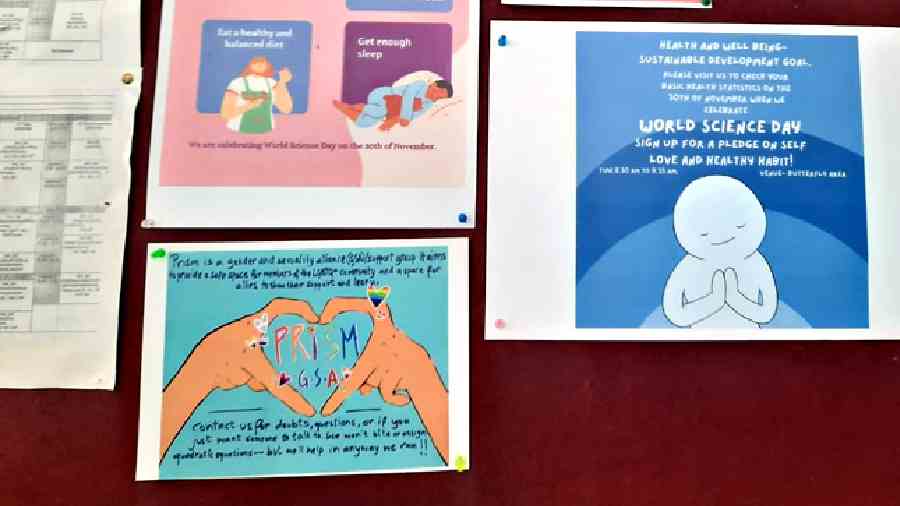This is a safe space, announces a poster with pride colours on a school notice board.
“Contact us for doubts, questions, or if you just want someone to talk to....we’ll help you in any way we can,” it says.
A club that supports and gives space to the LGBTQ+ community in Calcutta International School is trying to create awareness, sensitivity among students and visibility on the campus.
Led by senior students, Prism is a gender and sexuality alliance (GSA)/support group and with 21 members, it is slowly growing.
Prism started just before the pandemic but it is only in the new session in July this year that it was “re-born”.
The members have expanded their activities to holding assemblies and talking to students in classrooms and outside.
The group does not seek to impose ideas or push anyone to “come out” but tries to create acceptance and empathy for those who identify themselves as members of the community.
“People who don’t have a safe space and acceptance at home, grow up in hostile spaces. But it is not normal for them and impacts their mental health, leads them to suppress themselves and puts them through a journey of pain and agony. School is a second home and such a safe space or a support group gives them a sense of community and also helps them open up,” said Abonti Mukherjee, president of Prism and a student of Class XII (A level).
Another city institute, South City International School started an LGBTQIA club in April to encourage young students to be more accepting of differences and let those with different gender identities feel more secure instead of living in fear of being ridiculed.
The presence of such clubs in a school environment helps students embrace diversity and practice inclusion.
“It is a safe space for students to find their identity and express their identity,” said Tina Servaia, senior school principal at Calcutta International School.
“In today’s age, gender normativity is changing and students are willing to identify as different. What normally happens is if we do not talk about it the students might feel it is not accepted and feel different. If we normalize it and make it part of the conversation they do not feel excluded,” said Servaia.
The aim, teachers said, was to reach out to every student to be sensitive, to understand that everybody is equal and should be “given a chance to be who they want to be”.
The group is more prominent now than it used to be.
Its members talk to students about issues like puberty, adolescence and gender preferences.
The posters in the school say Prism aims to “provide a safe space for the members of the LGBTQ+ community and a space for allies to show their support and learn”.
The group meets at least once a week among themselves to talk and discuss.
Prism try to address misconceptions too like joining the group does not turn them into one from the community, said a student member Sia Agarwal of International Baccalaureate (IB Year I).
“A lot of people might not be comfortable coming out and even that is understandable. But those who want can talk confidentially,” said Shreyan Banerjee, an IB year I student.
The posters that have been put up provide phone numbers where students can clarify doubts or just talk to express their support and allyship.
